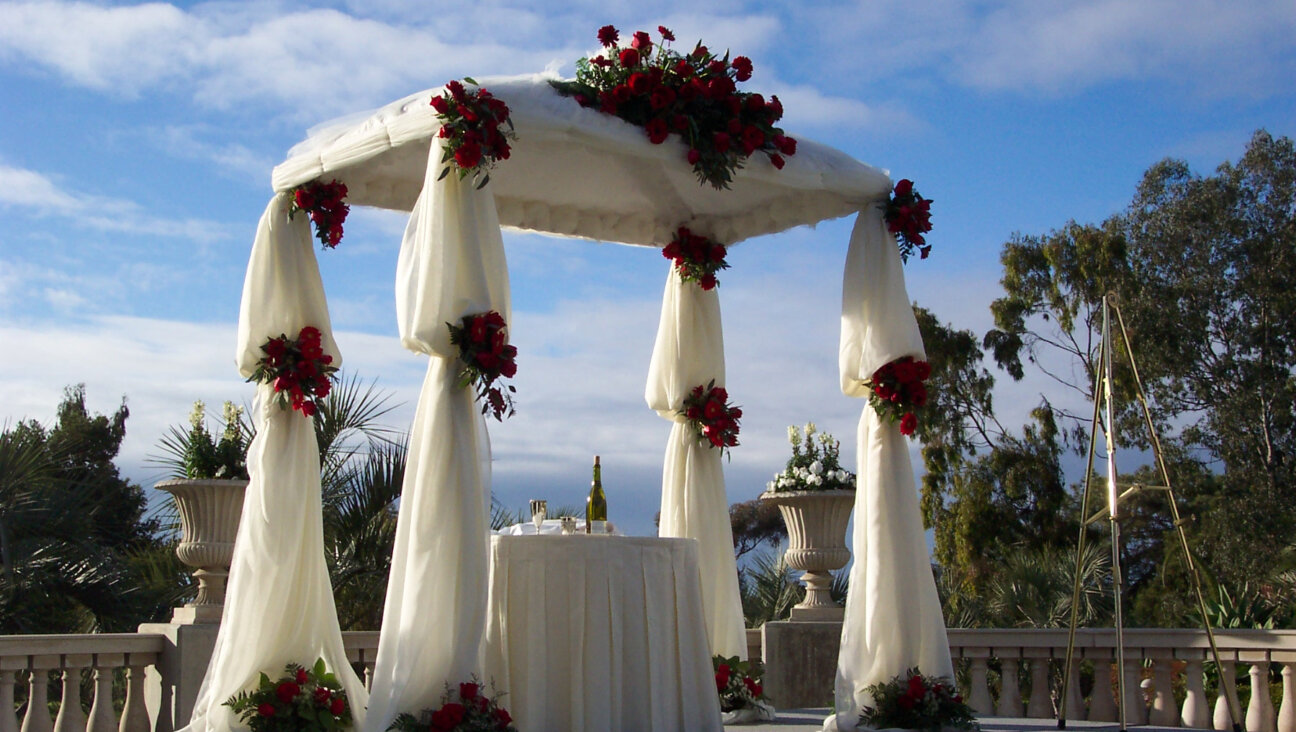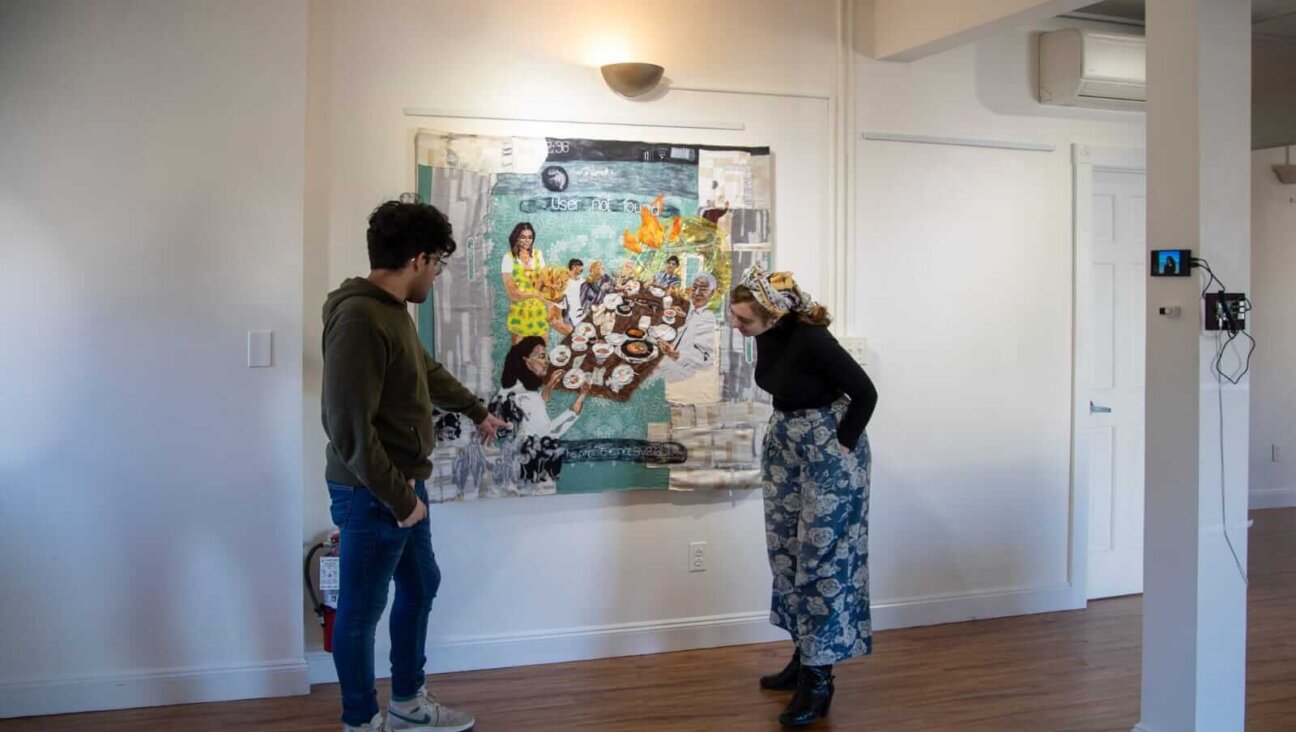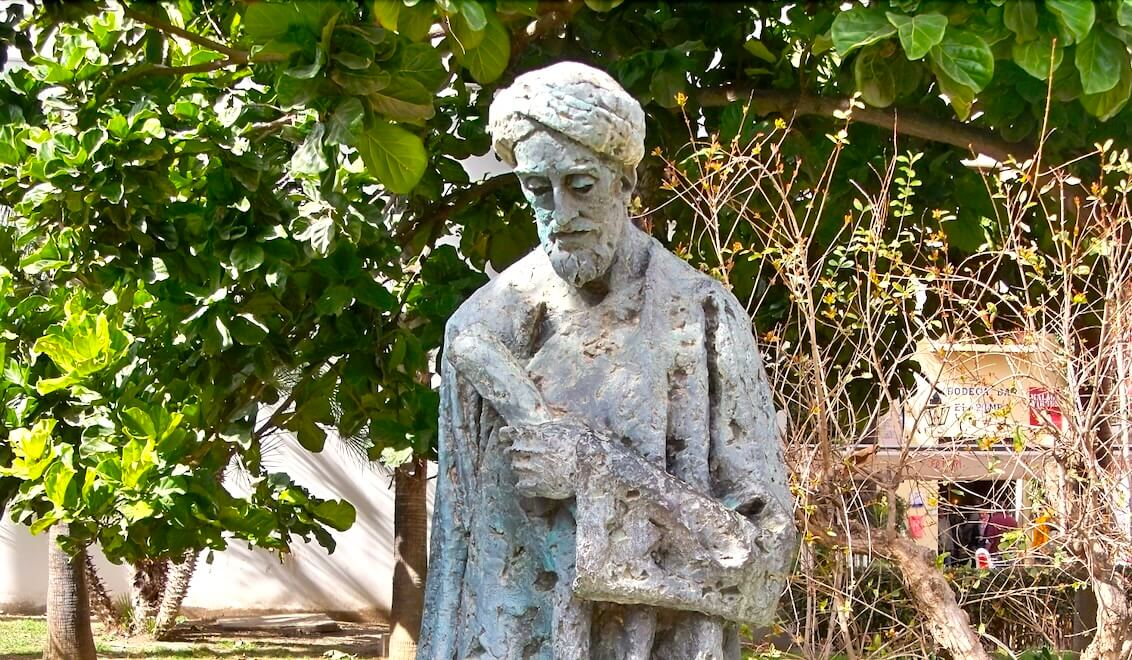Jerusalem Passport Case Divides Supreme Court

Graphic by Angelie Zaslavsky
(Reuters) — The U.S. Supreme Court appeared closely divided on Monday as it considered whether Congress overstepped its authority in passing a law designed to allow American citizens born in Jerusalem to have Israel listed as their birthplace on passports.
Congress passed the law in 2002 but the government has never enforced it. Seeking to remain neutral on the hotly contested issue of sovereignty over a city holy to Jews, Muslims and Christians, the State Department allows passports to name Jerusalem as a place of birth, with no country name included.
The parents of a Jerusalem-born 12-year-old boy, U.S. citizen Menachem Zivotofsky, have waged a long court battle to have his passport state he was born in Israel.
At issue is the longstanding U.S. policy that the president, not Congress, has sole authority to provide American recognition of who controls Jerusalem, a city claimed both by Israelis and Palestinians.
During a one-hour argument, the liberal justices on the nine-member court signaled support for the government. Conservative justices were more sympathetic to the parents, Ari and Naomi Zivotofsky.
Justice Anthony Kennedy, often the court’s swing vote in close decisions, is likely to again find himself in that role.
Kennedy signaled some support for the government, saying if the case rests on the determination that the law indicates recognition of Israel’s sovereignty over Jerusalem, the State Department “should be given deference.”
However, he also indicated a possible compromise in which the law is enforced but the government adds disclaimers in passports saying the place of birth is not intended to recognize Israel’s sovereignty over Jerusalem.
The State Department maintains the law violates the U.S. Constitution’s separation of executive and legislative powers. It says a loss for the government in the case would be seen around the world as a reversal of U.S. policy that could cause “irreversible damage” to America’s ability to influence the region’s peace process.
That argument appeared to gain traction with the liberal justices, including the court’s three Jewish members: Ruth Bader Ginsburg, Stephen Breyer and Elena Kagan. Kagan said Jerusalem’s status is so contentious that any development, no matter how minor, “is a big deal” in the Middle East.
Kagan likened the statute to a “very selective vanity plate law,” referring to customized car license plates. She noted that Jerusalem-born U.S. citizens of Palestinian heritage cannot ask for a passport stating they were born in Palestine.
Of the conservative justices, Antonin Scalia seemed most supportive of the family, saying foreign policy concerns should not be taken into account when deciding whether Congress had authority to pass the law.
“If it is within Congress’s power, what difference does it make whether it antagonizes foreign countries?” Scalia said.
While Israel calls Jerusalem its capital, few other countries accept that. Most, including the United States, maintain embassies in Tel Aviv. Palestinians want East Jerusalem, captured by Israel in a 1967 war, as capital of the state they aim to establish alongside Israel in the West Bank and Gaza Strip.
A ruling is due by the end of June.
The case is Zivotofsky v. Kerry, U.S. Supreme Court, 13-628.














